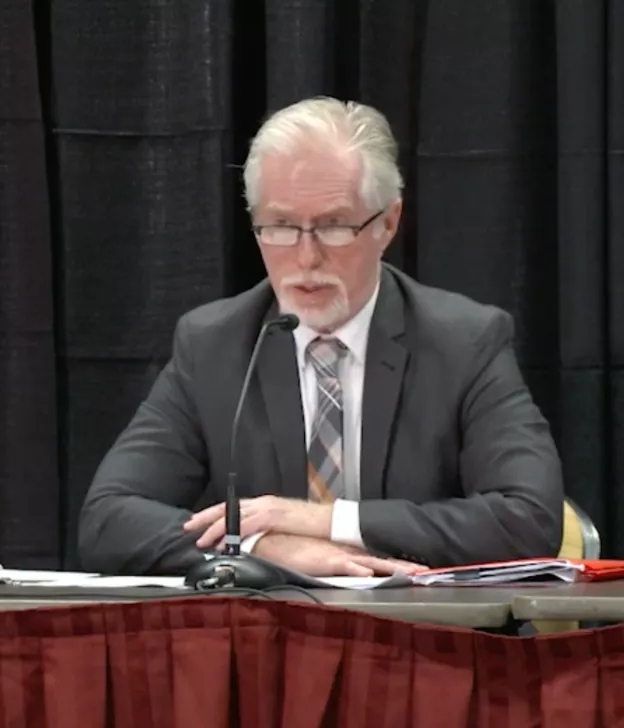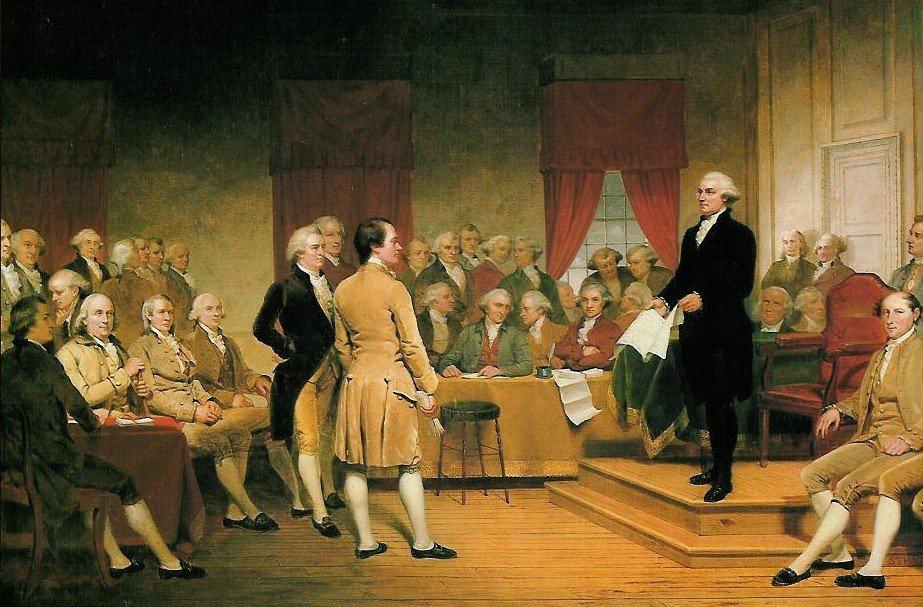
Time to truly ‘observe’ Constitution Day
Daniel Cullen. Published 11:00 pm CT Sept 14, 2016. Updated 11:11 pm CT Sept 16, 2014.
Congress has a penchant for commemorative “observances” that celebrate American icons or acknowledge worthy groups. Hence National Corvette Day (June 30), and World Plumbers Day (March 11). National Beat-Up Corolla Day would speak to me more, yet I endorse Congress’ salute to “plumbing professionals across the United States,” with whom I am all too familiar.
Sept. 17 is another and more serious official observance. Constitution Day includes a gentle mandate that colleges and universities mark the signing of the 1787 Constitution with an educational program. But we instructors do not take even gentle instruction well; and although when it comes to understanding the Constitution, most of us really aren’t smarter than a fifth-grader, on too many campuses Constitution Day passes unobserved.
To “observe” means not just look at, but look to, to “guard,” “follow,” or “attend to in practice.” Asked whether the Philadelphia Convention had devised a republic or a monarchy, Benjamin Franklin purportedly replied: “A Republic, if you can keep it.” He might have said, “if you observe it.”
The question was real. Alarmed by the magnitude of the executive power, George Mason warned the Virginia Ratifying Convention that a president might one day “establish a monarchy, and destroy the republic.” Defending a unitary and energetic executive in The Federalist Papers, Alexander Hamilton had to take pains to distinguish a republican president from the British king.
Constitutional government is limited government, though limited need not mean weak. It enshrines the rule of law, demanding more of political actors than good will or self-restraint. Current debates about the propriety of a “progressive” use of executive authority capable of surmounting obstacles presented by the separation of powers have a partisan tinge, which should not surprise us. As political scientist James Ceaser points out, in our system, “it falls mostly to political actors making political decisions to protect and promote constitutional goals.” Although what partisans dearly want may pass constitutional muster in their minds, they must still demonstrate to the rest of us how their intentions conform to the ends and means of the Constitution.

Preoccupied with the dangers of legislative overreach, the Framers neither expected nor intended the rise of presidential government as we know it; but they felt keenly the difficulty of defining and constitutionalizing executive power. Aware that threats would spring from sources outside the domain of law, they understood that emergencies might compel presidential recourse to prerogative powers for which the Constitution could not comfortably provide. The president nevertheless remained the creature of the Constitution, obliged to respect its forms. It is noteworthy that presidents swear an oath to serve, not the people, but the Constitution that created the office they temporarily occupy.
My wistful reading about Corvettes includes this tribute to the 2014 Stingray: “Everywhere you look there are thoughtful design decisions.” Ditto for the 1787 Constitution. The Framers knew that each generation would confront that Constitution with its own needs, but also with political impulses in need of moderation by its various braking systems. The delegates at Philadelphia disagreed about numerous issues of power and performance, and their constitutional design remains controversial. Let’s continue to discuss and debate it. Let’s also be as knowledgeable and concerned about our political engineering as we are about our automotive engineering.
As Hillary Clinton noted in another context, great nations need organizing principles. In the current argot, ours would be: Don’t do unconstitutional stuff. To heed that admonition, however, we need a higher education in the theory and practice of free government, one conducive to the reflective citizenship modeled at the Convention in Philadelphia.
Daniel Cullen teaches political science at Rhodes College. He is also a member of the Academic Council of The Jack Miller Center for Teaching America’s Founding Principles and History and coordinator of its national Constitution Day Initiative.
